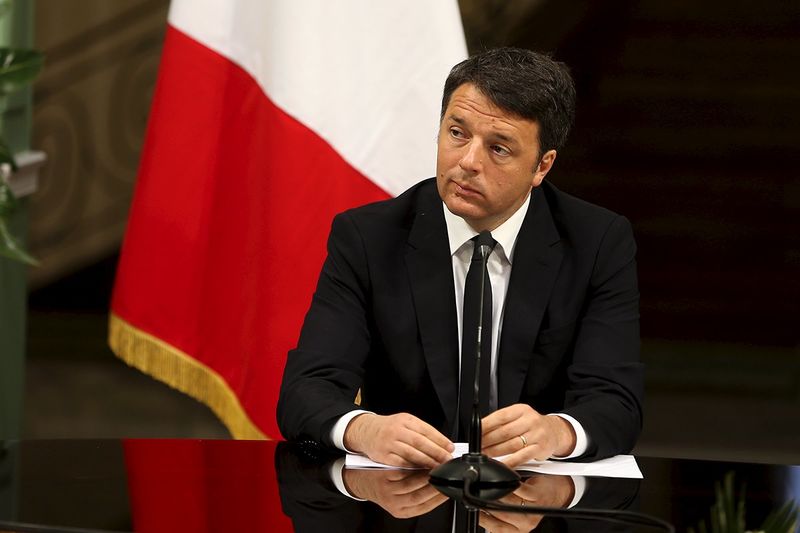By Crispian Balmer
ROME (Reuters) - The Italian parliament passed Prime Minister Matteo Renzi's flagship constitutional reform on Tuesday, opening the way for a referendum later this year on an overhaul aimed at giving Italy more stable governments.
Renzi says the reform will increase political stability and end decades of revolving-door governments that have made it difficult to revive the country's debt-ridden economy. He has promised to resign if the referendum goes against him.
The reform effectively abolishes the Senate as an elected chamber and sharply restricts its ability to veto legislation. In the current system, the upper and lower houses of parliament have equal powers.
"This is a historic moment for Italy," Renzi said from Iran, where he was drumming up business for Italian companies. "I am very happy because Italy used to be the least stable country in Europe. Today it is the most stable country in Europe."
The bill passed by 361 to 7 in the lower house, with opposition parties abandoning the assembly before the final vote. The referendum is expected in October.
The law is inextricably tied to Renzi's other main political reform, the introduction of a new, two-round voting system for the lower house. Together, they should give Italy governments that survive full, five-year terms - something that has never happened since World War Two.
Critics say the changes will strip away vital democratic checks and balances that were put in place after the war to prevent the rise of a political strongman like the Fascist leader Benito Mussolini.
"Italians in October will vote to stop this evil reform that will give us a de facto presidential system, concentrating all the power into the hands of one person," said Monica Gregori, a parliamentarian from a hard-left party.
Under the lengthy procedures required for constitutional changes, both houses have passed the reform twice each, with the bill taking two years to crawl through parliament.
In an effort to sink the project, the right-wing Northern League party used a computer algorithm to unleash 82 million amendments to the bill when it went before the Senate last year. The effort failed, with Renzi controversially relying on the support of rightist renegades to win in the upper house.
"People did not believe we would ever be able to do this," Renzi said. "The political world has shown that it is capable of reforming itself."
Tuesday's vote will be a fillip to Renzi, who has struggled in recent weeks in the face of political scandals and signs that Italy's chronically underperforming economy continues to struggle.

Last week, his industry minister quit in a row over alleged influence peddling, and latest opinion polls suggest the anti-establishment 5-Star Movement would win power under the terms of the new electoral law.